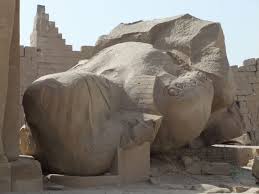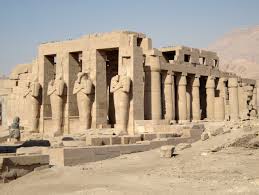I met a traveller from an antique land
Who said: “Two vast and trunkless legs of stone
Stand in the desert. Near them on the sand,
And wrinkled lip and sneer of cold command
Tell that its sculptor well those passions read
Which yet survive, stamped on these lifeless things,
The hand that mocked them and the heart that fed.
And on the pedestal these words appear:
‘My name is Ozymandias, King of Kings:
Look on my works, ye mighty, and despair!’
Nothing beside remains. Round the decay
Of that colossal wreck, boundless and bare,
The lone and level sands stretch far away.”
― Percy Bysshe Shelley, Ozymandias
In honour of Shelley, who died on this day 8 July 1822 – my favorite of his poems. He was apparently inspired to write this by a fragment of a colossal statue of Ramesses II in the British Museum. Two years ago I was in Luxor, Egypt and, due to recent tumultuous events in the country, there was only a fraction of the usual crowd of tourists in Luxor. Not a good situation for the people there, but wonderful for me, as many of the archaeological sites had few visitors. I was very keen on visiting the Ramesseum temple where there still remained a colossal statue of Ramesses II. Incredibly, I had the temple all to myself – not a single  other person there. It was an unparallelled opportunity to study the architecture and wall carvings, and to contemplate the great statue of Ramesses. It was indeed fallen on the ground, half sunk in sand – a great symbol of power in ancient times, now an equally potent symbol of the transience of worldly power. A reminder, as Shelley captured so intensely in his poem, of why we should not bind our identities to either our successes or failures, as all things do pass. And how much more reason to inhabit each of our days truly and authentically, as there is only ever the present moment.
other person there. It was an unparallelled opportunity to study the architecture and wall carvings, and to contemplate the great statue of Ramesses. It was indeed fallen on the ground, half sunk in sand – a great symbol of power in ancient times, now an equally potent symbol of the transience of worldly power. A reminder, as Shelley captured so intensely in his poem, of why we should not bind our identities to either our successes or failures, as all things do pass. And how much more reason to inhabit each of our days truly and authentically, as there is only ever the present moment.
 other person there. It was an unparallelled opportunity to study the architecture and wall carvings, and to contemplate the great statue of Ramesses. It was indeed fallen on the ground, half sunk in sand – a great symbol of power in ancient times, now an equally potent symbol of the transience of worldly power. A reminder, as Shelley captured so intensely in his poem, of why we should not bind our identities to either our successes or failures, as all things do pass. And how much more reason to inhabit each of our days truly and authentically, as there is only ever the present moment.
other person there. It was an unparallelled opportunity to study the architecture and wall carvings, and to contemplate the great statue of Ramesses. It was indeed fallen on the ground, half sunk in sand – a great symbol of power in ancient times, now an equally potent symbol of the transience of worldly power. A reminder, as Shelley captured so intensely in his poem, of why we should not bind our identities to either our successes or failures, as all things do pass. And how much more reason to inhabit each of our days truly and authentically, as there is only ever the present moment.

